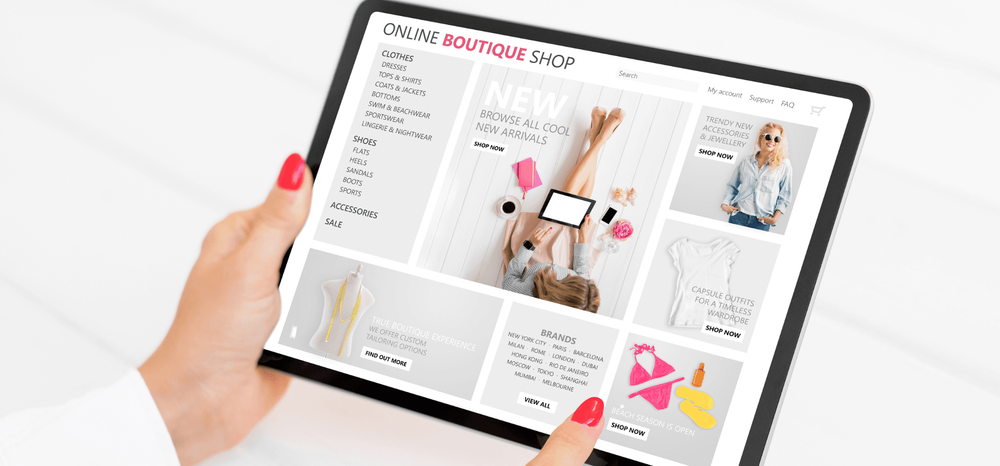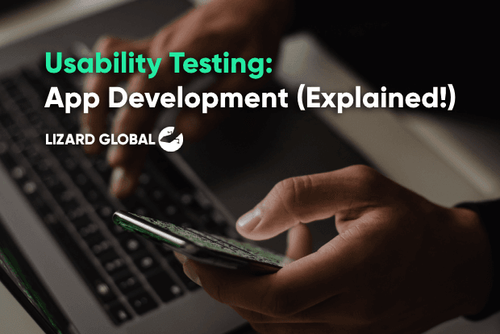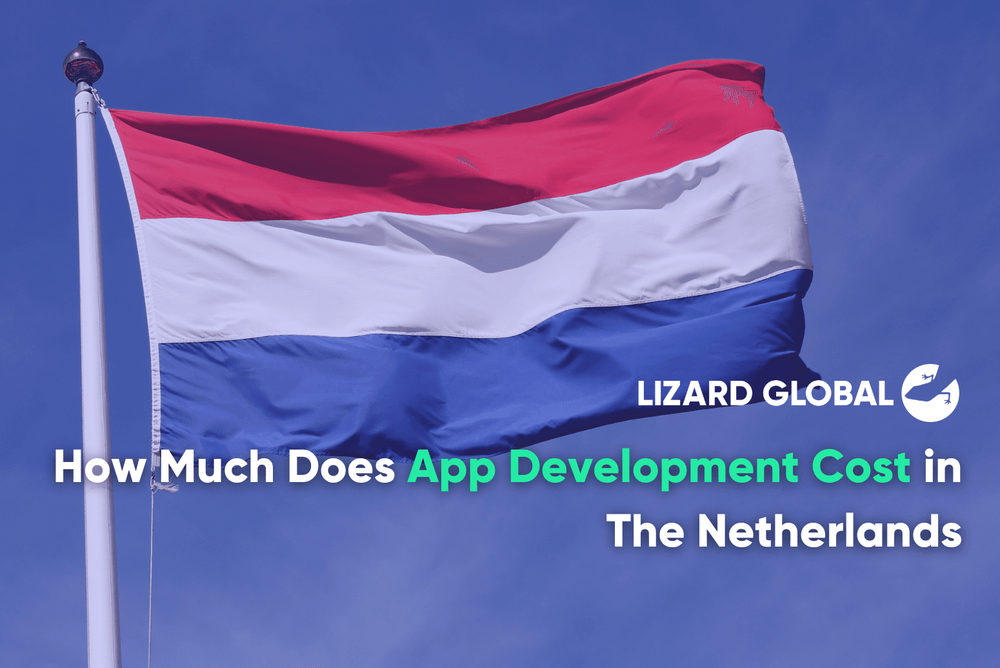Unlocking Personalization in eCommerce: How Data Analytics is Redefining the Online Shopping Experience
Get the latest updates about our blog posts.
Subscribe so you don’t miss out!
eCommerce has come a long way from static product pages and generic recommendations. With the rise of big data and advanced analytics, online shopping is becoming smarter, more intuitive, and tailored to each individual user.Key Takeaways
- Personalization increases revenue and loyalty: eCommerce stores using personalized experiences see higher conversion rates and longer customer retention by delivering what users want, when they want it.
- Data analytics fuels intelligent decision-making: Real-time tracking of customer behavior enables businesses to make smarter, data-backed decisions about what to show, offer, and optimize.
- Recommendation engines are revenue drivers: Personalized product suggestions based on behavior, preferences, and peer patterns can account for a significant chunk of eCommerce sales.
- Dynamic pricing & targeted offers boost conversions: Using data to tailor pricing and discounts to individual customers ensures promotions are relevant and more likely to convert.
- UI/UX analytics improve the entire shopping journey: By understanding how users interact with your platform, you can optimize design and navigation to reduce drop-offs and increase satisfaction — a core part of Lizard Global’s value offering.
Imagine logging into your favorite online store and seeing a homepage curated just for you — products you actually want, personalized offers, and seamless navigation that feels like the platform "gets" you.
This is the power of data analytics in eCcommerce, and it's revolutionizing how brands engage, convert, and retain customers.
What Is Personalized Shopping — And Why Does It Matter?
Personalized shopping refers to the practice of using data to tailor the shopping experience to individual users. This includes customized product recommendations, targeted promotions, tailored search results, and even personalized homepage layouts.
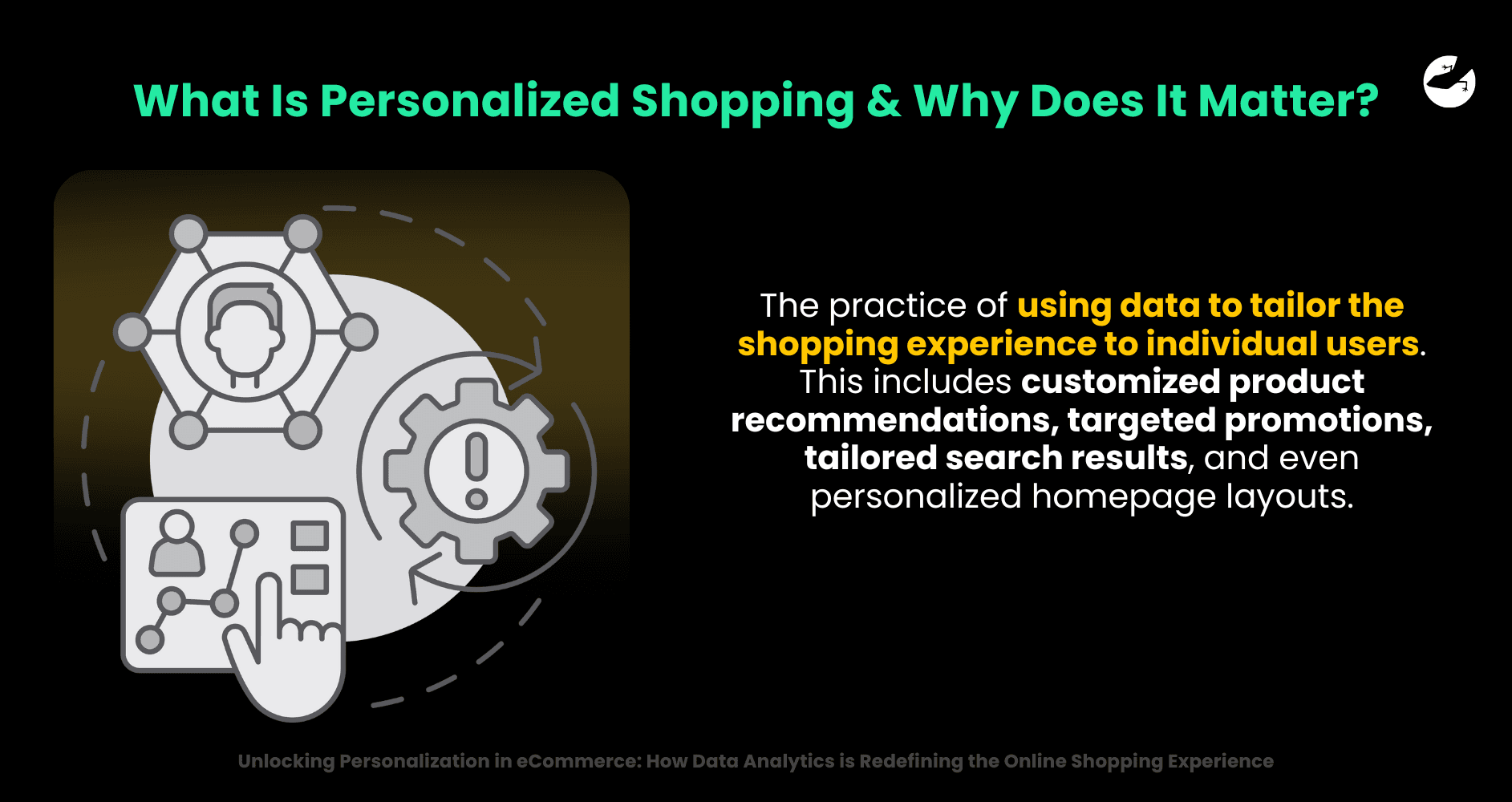
But why does it matter? Because modern consumers expect it. According to research, 80% of shoppers are more likely to buy from a brand that offers personalized experiences. When done right, personalization can boost sales, increase customer satisfaction, and build long-term brand loyalty.
At the heart of this transformation lies eCommerce data analytics — the practice of gathering, analyzing, and acting on customer data to create tailored experiences that drive results.
The Role of Data Analytics in Creating Hyper-Personalized Experiences
Let’s dive into how data analytics fuels personalized eCommerce, and why it’s such a game-changer.
1. Understanding Customer Behavior in Real-Time
Every click, scroll, search, and purchase tells a story. Data analytics allows eCommerce platforms to collect and interpret this data in real-time, offering a window into individual preferences and behaviors.
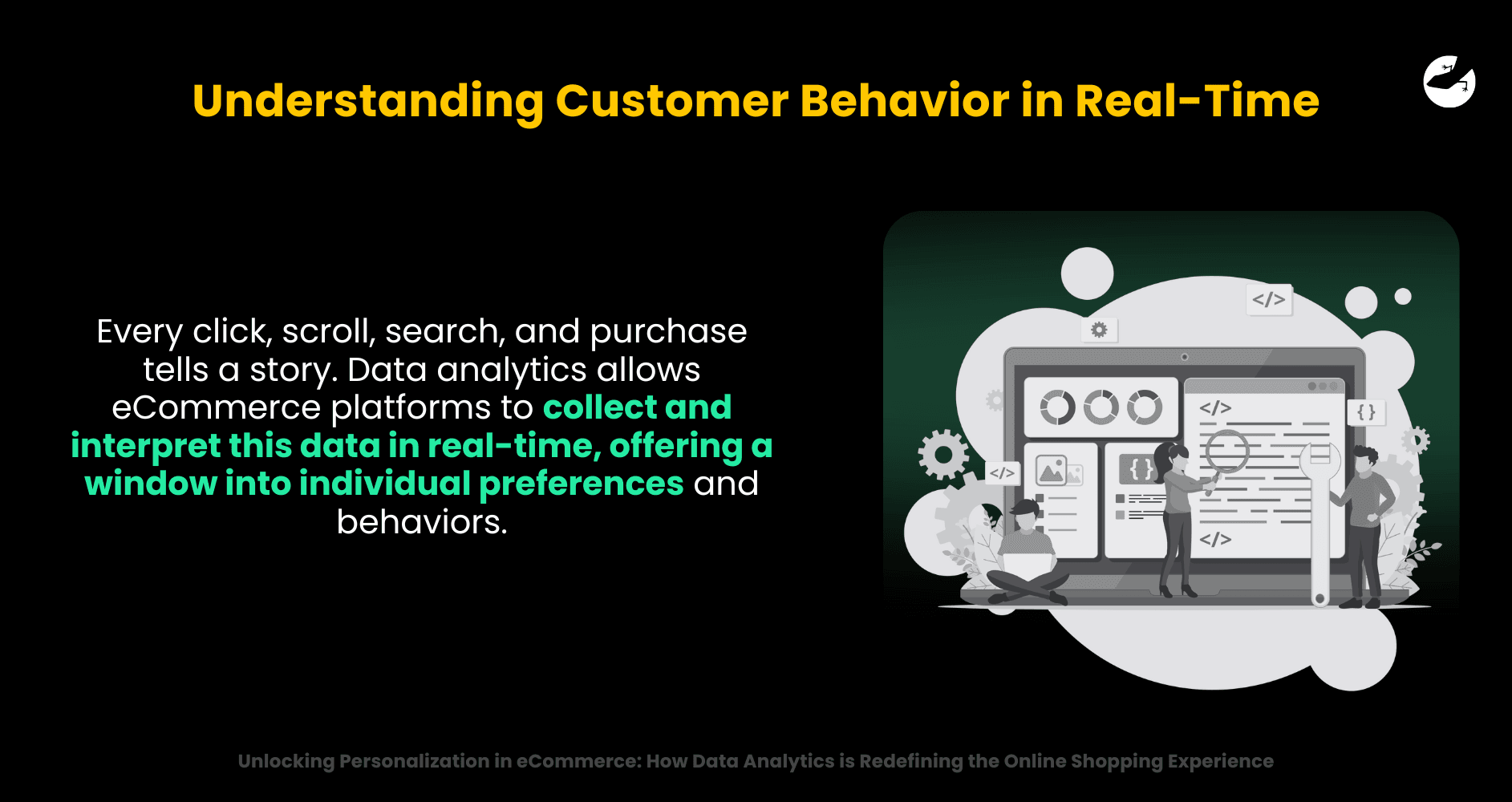
Instead of guessing what a customer might like, brands can use behavioral data to make informed decisions. For example, if a user frequently browses athletic wear but hasn’t made a purchase, the system can trigger a special offer on sports apparel to encourage conversion.
Predictive analytics takes this a step further by forecasting future behavior based on historical data — helping eCommerce businesses stay one step ahead.
2. Smarter Product Recommendations
Ever wondered how Amazon always seems to know what you need next? That’s the magic of recommendation engines powered by data analytics.
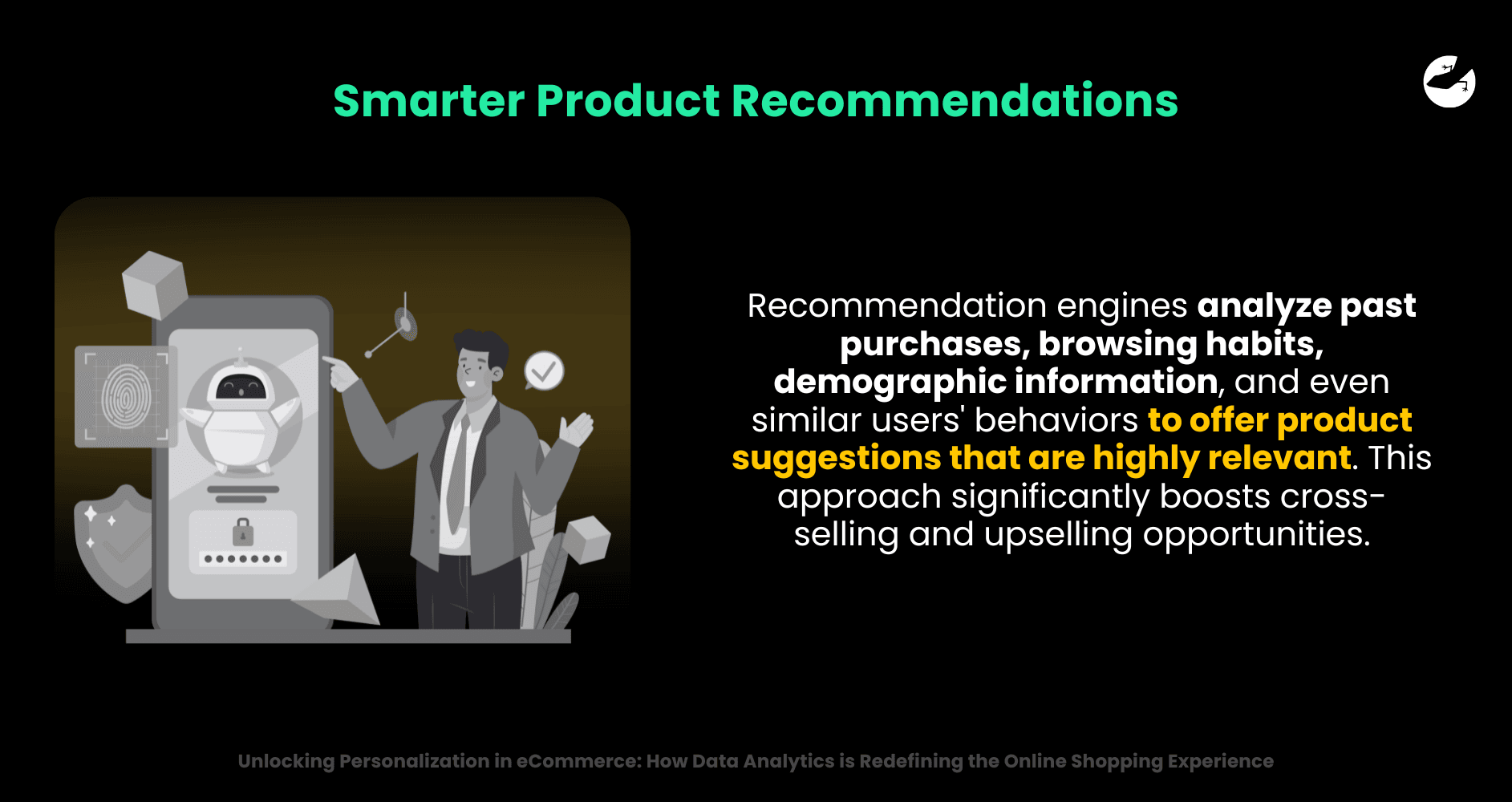
These engines analyze past purchases, browsing habits, demographic information, and even similar users' behaviors to offer product suggestions that are highly relevant. This approach significantly boosts cross-selling and upselling opportunities.
Personalized recommendations aren’t just nice-to-have — they can account for up to 30% of eCommerce revenue, according to industry reports.
3. Dynamic Pricing and Personalized Discounts
Using data analytics, online stores can implement dynamic pricing strategies that adjust in real-time based on demand, competition, user behavior, and other factors. This ensures that prices remain competitive while maximizing profitability.
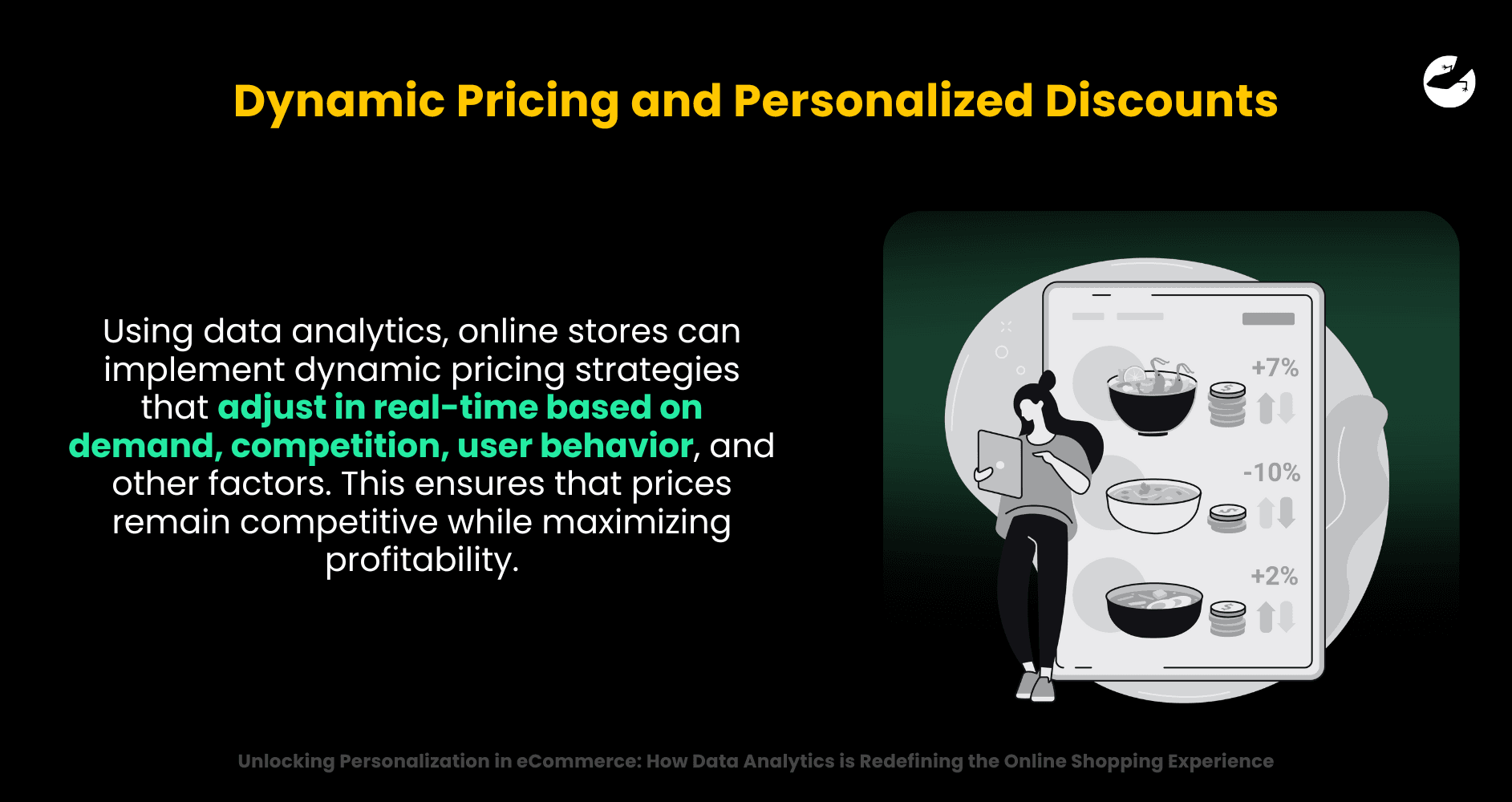
But it doesn't stop there. Platforms can also offer personalized discounts to users who are more price-sensitive, likely to churn, or browsing without converting. Instead of offering site-wide promotions, targeted discounts are more efficient and impactful.
This level of personalization makes shoppers feel valued and can significantly increase conversion rates.
Want to find out how much it costs to build your dream app or web app?
4. Optimizing the Customer Journey Across Channels
Omnichannel experiences are essential in today's eCommerce landscape. Customers interact with brands through websites, mobile apps, social media, and even physical stores. Data analytics helps unify these touchpoints into a cohesive journey.
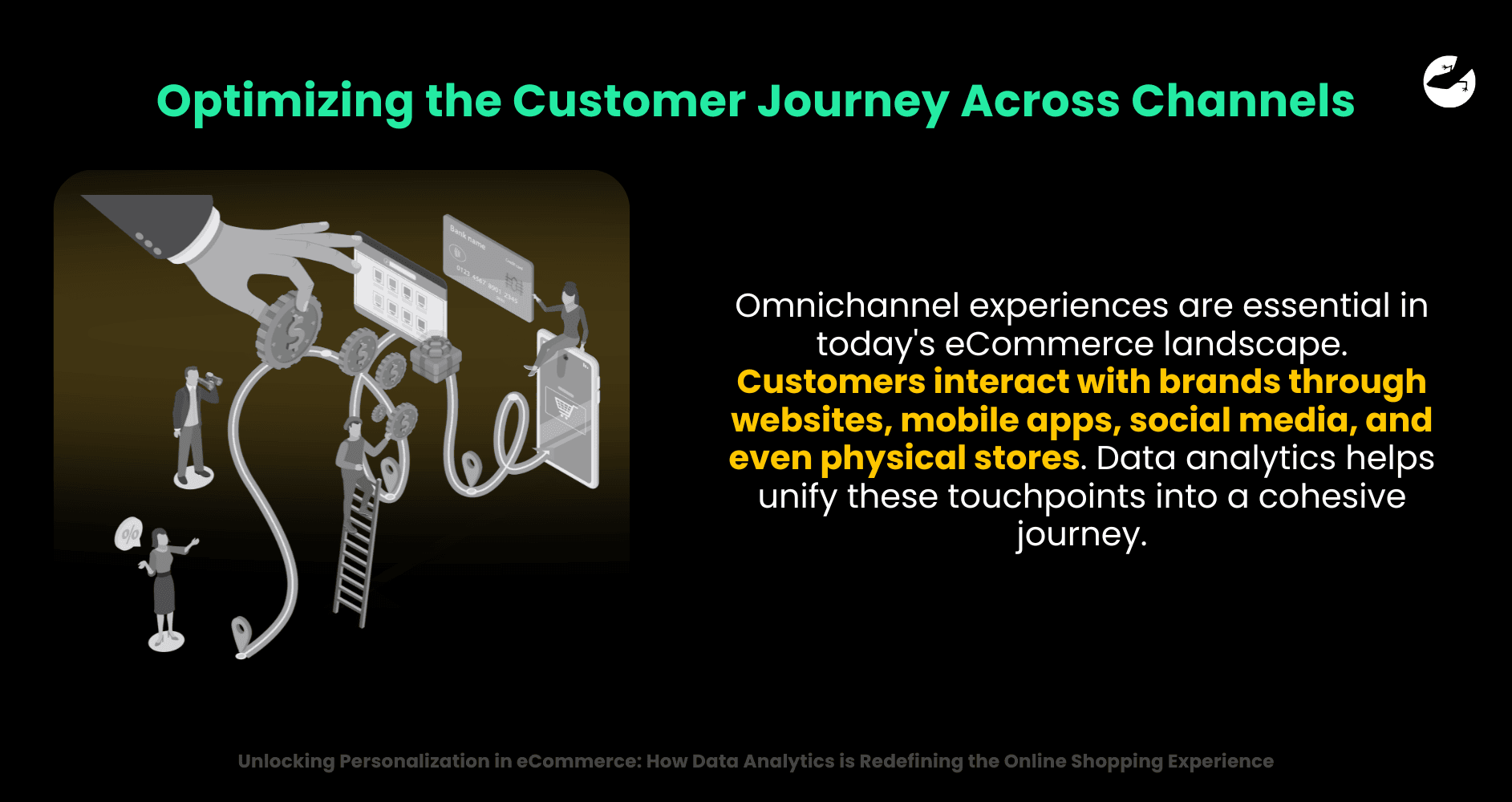
By tracking user behavior across platforms, businesses can ensure that personalization doesn’t stop at the desktop. A user who abandons a cart on their mobile app can receive a follow-up email with a reminder or discount. This seamless cross-channel personalization enhances convenience and encourages conversions.
5. Enhancing User Experience with UI/UX Data Insights
Personalization isn’t just about what products are shown — it’s also about how the experience feels. UI/UX analytics help identify friction points in the user journey, such as confusing navigation, slow-loading pages, or drop-off points during checkout.
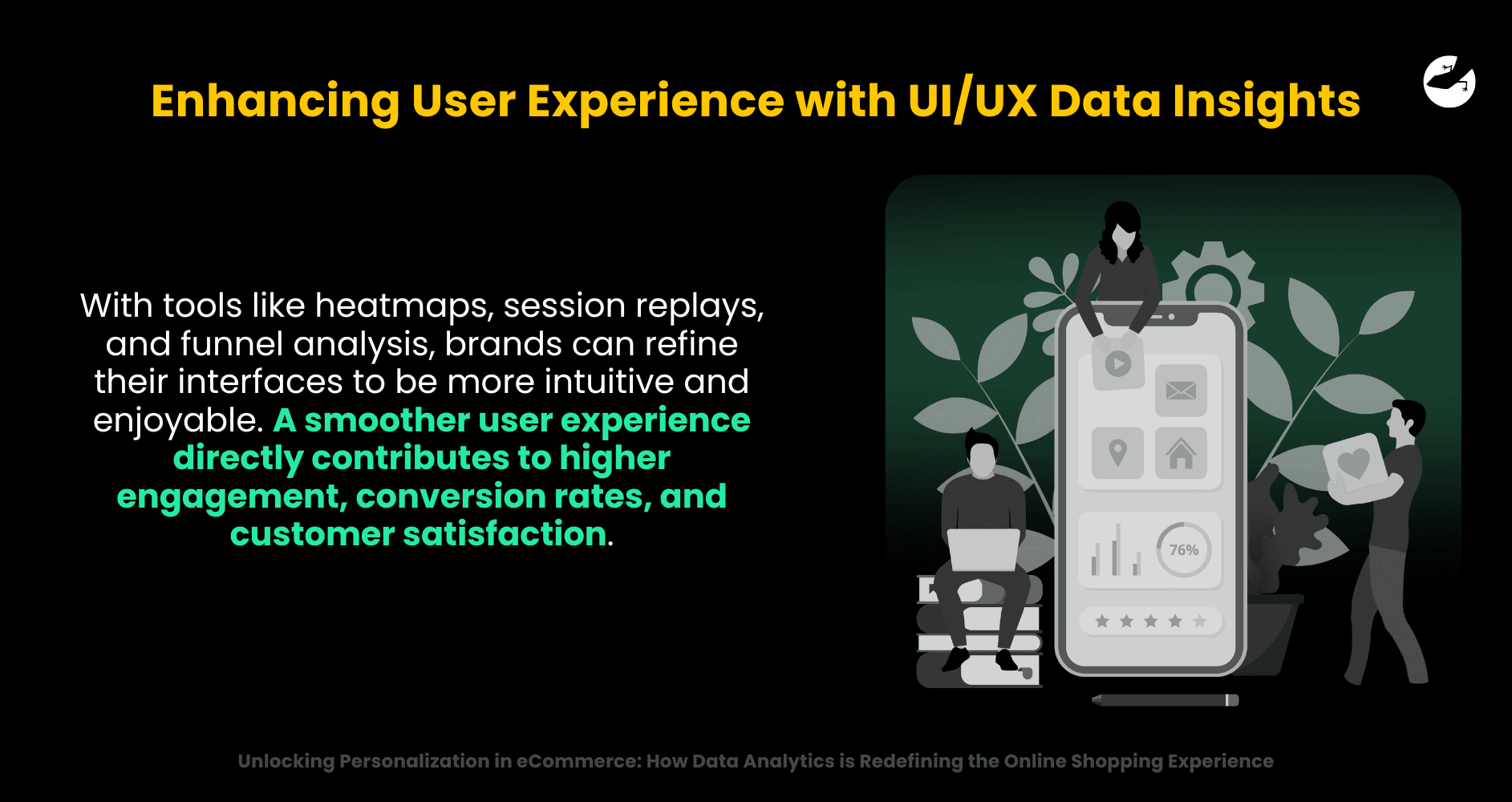
With tools like heatmaps, session replays, and funnel analysis, brands can refine their interfaces to be more intuitive and enjoyable. A smoother user experience directly contributes to higher engagement, conversion rates, and customer satisfaction.
Here at Lizard Global, we believe data-driven design is just as important as data-driven marketing. That’s why we integrate UI/UX analysis into every stage of the eCommerce journey.
Data Privacy and Ethical Personalization
It’s crucial to acknowledge the importance of ethical data use in personalized shopping. Customers are becoming increasingly aware of how their data is collected and used. Transparency, compliance with regulations like GDPR or PDPA, and giving users control over their data are not optional — they’re essential for building trust.
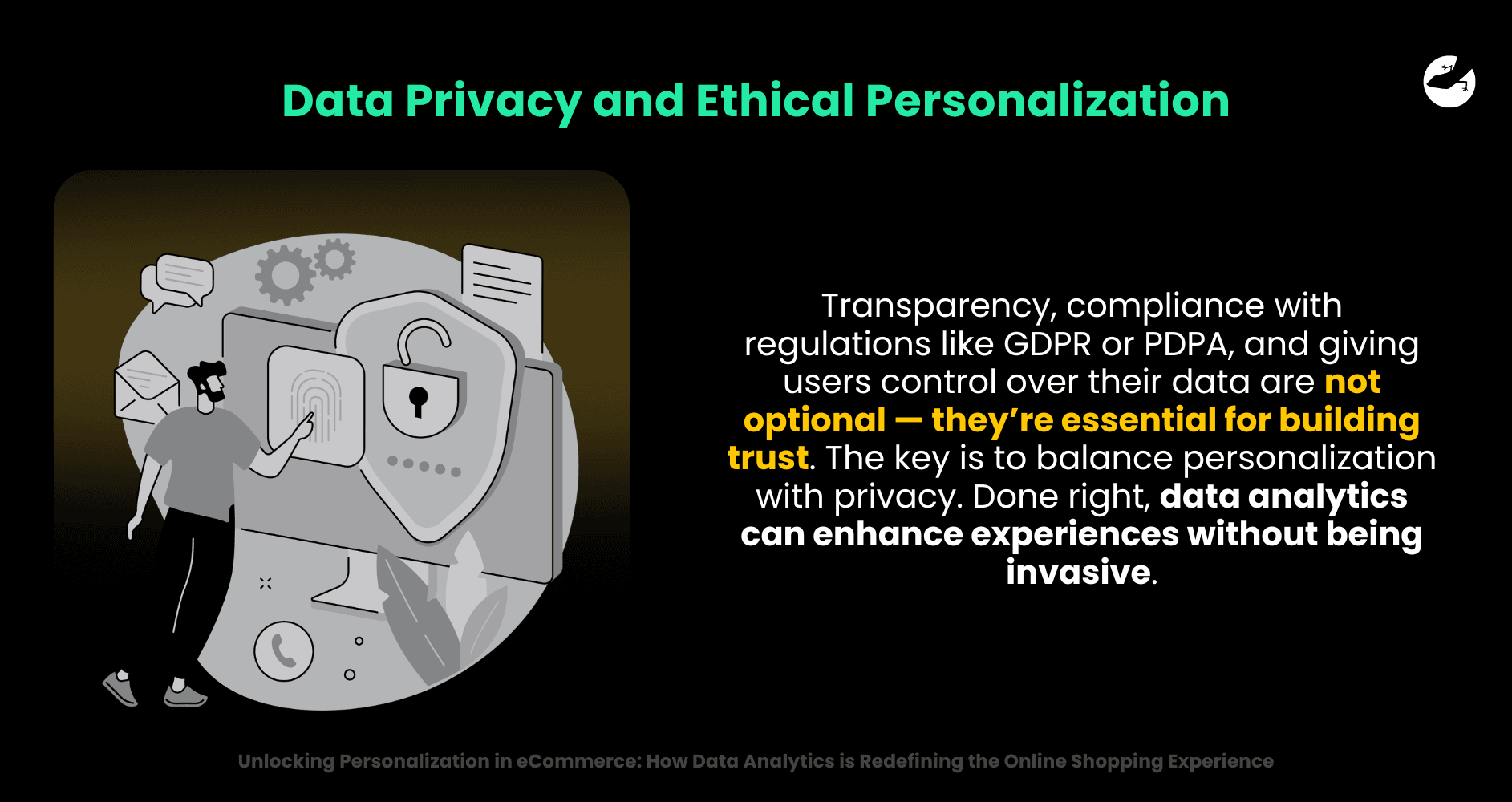
The key is to balance personalization with privacy. Done right, data analytics can enhance experiences without being invasive.
How Lizard Global Can Help You Deliver Personalized Shopping Experiences
At Lizard Global, we specialize in helping eCommerce businesses harness the power of data analytics and UI/UX design to create unforgettable, personalized customer experiences.
Whether you're a growing startup or an established online brand, we offer:
- Custom data analytics dashboards to track customer behavior, preferences, and trends
- AI-powered recommendation systems tailored to your business goals
- Conversion-boosting UI/UX audits based on real user data
- Omnichannel journey optimization for seamless cross-platform personalization
And best of all? We provide free initial UI/UX and data analytics consultations to help you identify your biggest growth opportunities
We don’t just deliver software — we become your strategic tech partner. With a proven track record in custom eCommerce development, our team combines creative design, data science, and business insight to take your online store to the next level.
Ready to bring your eCommerce vision to life? Let’s talk.
